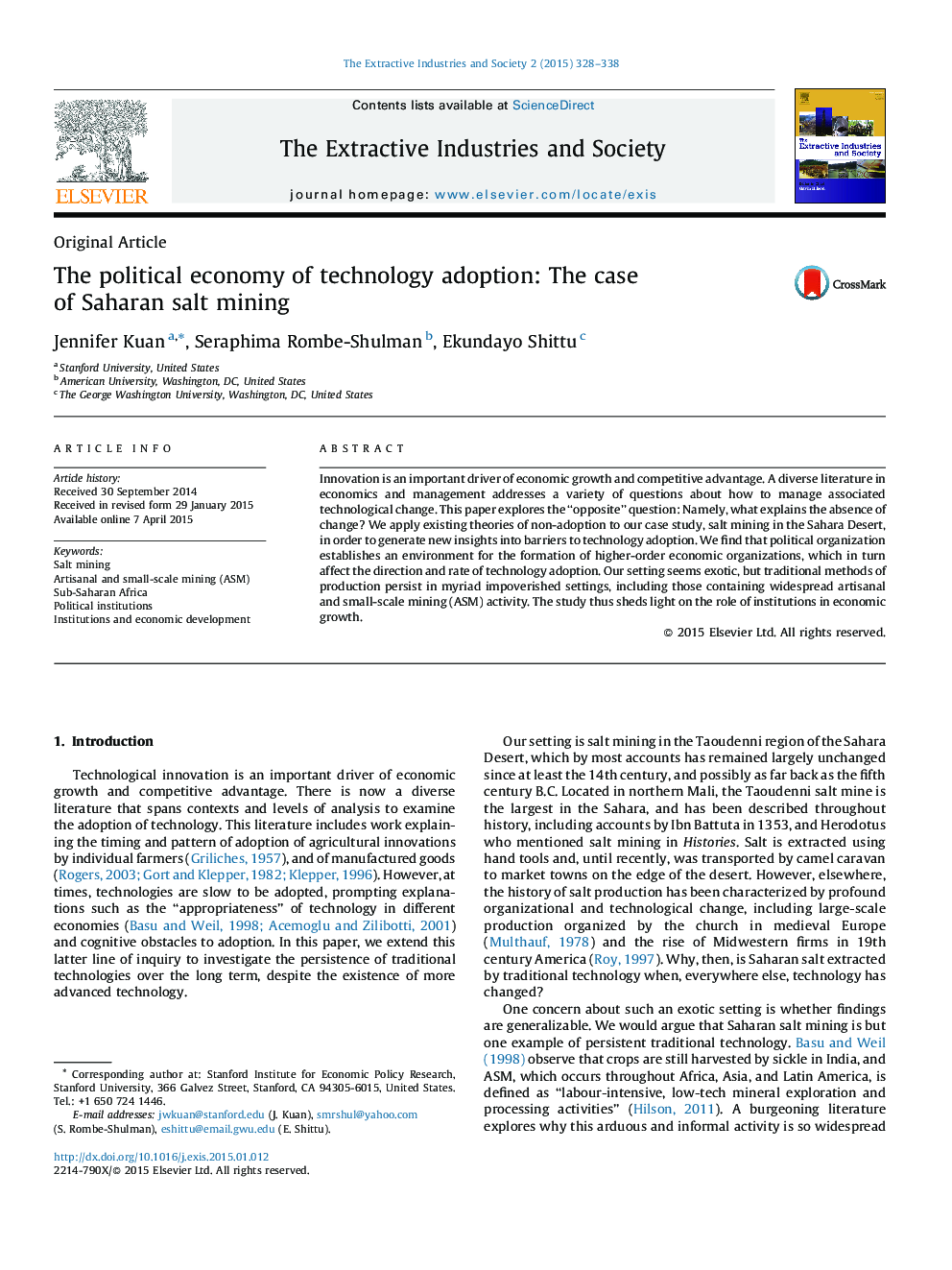| Article ID | Journal | Published Year | Pages | File Type |
|---|---|---|---|---|
| 1047499 | The Extractive Industries and Society | 2015 | 11 Pages |
•Case of long-term technology non-adoption informs study of economic organization.•Even where markets function, firms are needed for technology adoption.•In our setting of poverty and limited technology adoption, there are no firms.•Political system is essential in supporting the autonomous formation of firms.
Innovation is an important driver of economic growth and competitive advantage. A diverse literature in economics and management addresses a variety of questions about how to manage associated technological change. This paper explores the “opposite” question: Namely, what explains the absence of change? We apply existing theories of non-adoption to our case study, salt mining in the Sahara Desert, in order to generate new insights into barriers to technology adoption. We find that political organization establishes an environment for the formation of higher-order economic organizations, which in turn affect the direction and rate of technology adoption. Our setting seems exotic, but traditional methods of production persist in myriad impoverished settings, including those containing widespread artisanal and small-scale mining (ASM) activity. The study thus sheds light on the role of institutions in economic growth.
